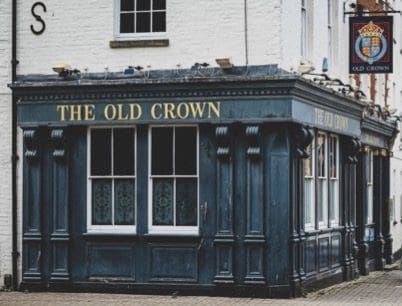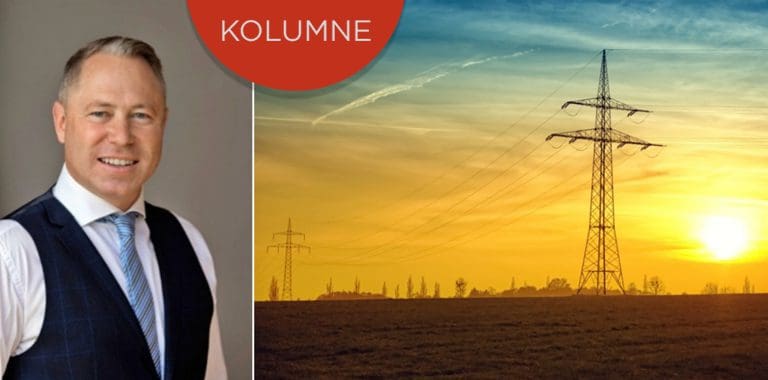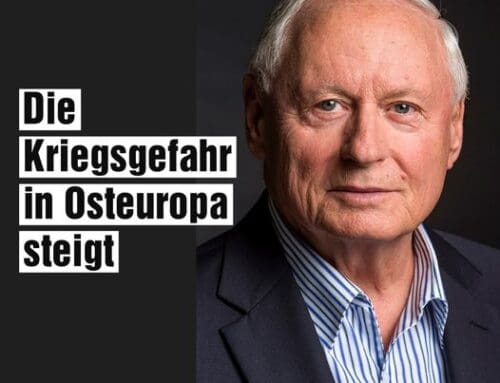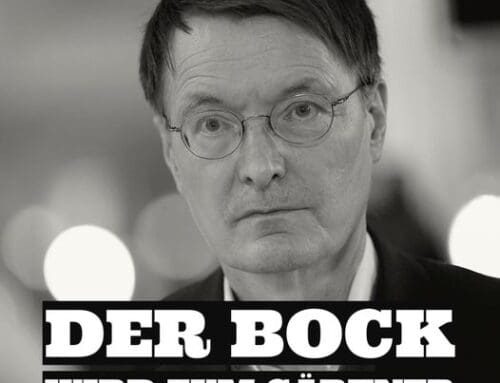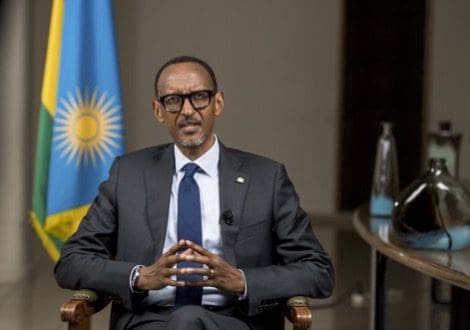

Boris Johnson sends refugees to most racist country on earth
Horrible memories of the terrible events of 1972 came back to me when I heard about the plans of Boris Johnson, the British Prime Minister, to deport refugees and illegal immigrants to Rwanda, probably the most racist country on the face of the Earth.
Johnson, commenting on the criminal gangs who make a lot of money by smuggling people from Africa and the Middle East across dangerous waters into England, proposed that some of them should be forced to be flown to Rwanda for asylum. I listened to him, and I read what the newspapers said about this mad idea, and saw some of the reactions of the British people, and my mind went back to the horrors of 50 years ago, which shook me to the core and changed forever my political outlook.
I arrived in England from South Africa in May 1972. I was young, hated apartheid, supported the anti-apartheid movement, thought socialism would solve all our problems, read the Guardian and believed what I heard on the BBC. Soon after arriving I began hearing stories about Idi Amin, who had seized power in Uganda. Amin, forever railing against the British Empire, quickly set about the mass murder of black people in Uganda. He began slaughtering tens of thousands of Lango, Acholi and other blacks of the wrong races. (“Race”, “tribe”, “nation” and “ethnic group” mean essentially the same thing.)
The final count of his butchery will never be accurately known but it ran into hundreds of thousands. This seemed of little interest to the anti-apartheid movement or to the British politicians or to the British people but it made him a great African hero. In 1975 he was elected Chairman of the Organisation of African Unity. Had Julius Malema been around at the time, he would have hailed him as even more glorious than Robert Mugabe, who also deliberately slaughtered black people but not as many as Amin. Exploiting black prejudice against Asians, Amin turned on the Asians in Uganda. Had he killed them all, nobody in Britain would have cared very much, but he did worse than that in their eyes. He kicked them out and most of them landed up in England.
There was uproar in Britain. It caused the most dramatic class divide I have ever seen there. It dropped the scales from my eyes about race and class. In South Africa I had been forced to recognise the awkward fact that the white working classes were the most enthusiastic supporters of apartheid and the most opposition to it came from the privileged white bourgeoisie. I thought it was some sort of South African anomaly, but Idi Amin showed me that England was the same. The British working classes were horrified at the prospect of these Asians coming to England. I heard a suggestion from them to sink the ships bringing the Asians over and drown them all. Enoch Powell, who was campaigning against black immigration, was their hero. He thundered against the coming of the Asians, and was cheered by the workers. The British PM, Edward Heath, a woeful leader but a man of high integrity, let the Asians in. The white British bourgeoisie, including all anti-apartheid and socialist activists, welcomed them.
At the same time something happened that shocked me even more. There occurred the worst racial crime since Hitler’s Holocaust. In the Great Lakes Region of Africa there are two small neighbouring countries, Burundi and Rwanda. They both have the same racial proportions. About 85% of their populations are Hutu, a Bantu people, and 14% Tutsi, a Nilotic people, who seem to have come from the north several centuries before. In pre-colonial times and in most of the colonial times, the Tutsi minority ruled the Hutu majority. The Tutsis looked down on the Hutu (and still do) and thought they were their natural rulers.
In early 1972, the Hutu in Burundi staged a feeble uprising against their Tutsi apartheid masters, which was easily put down. The Tutsi government then decided upon a final solution to the Hutu problem. They set about the carefully planned, systematic slaughter of all Hutu with more than primary school education. Tutsi death squads entered every high school in Burundi, picked out the Hutu pupils and murdered them, sometimes smashing in their skulls with sledgehammers. They went to every institution in Burundi to find educated Hutu or Hutu holding any sort of official position and butchered them. There were piles of corpses for all to see all over Burundi. The final death count will never be accurately known but it is estimated to be about 300,000 (over four thousand times the people killed at Sharpeville in 1960). What followed was even worse.
Nothing followed. The worst racial massacre since Hitler was met with complete silence – silence from United Nations, the anti-apartheid movement, the BBC and the Guardian. It showed me then what the Black Lives Matter movement shows me now, that these ghastly moral pretenders care nothing about the suffering of black people, but only about the sins of white people.
In 1962, in neighbouring Rwanda, the departing Belgian colonialists instituted a sort of majority rule (which meant rule by the Hutu) and granted independence. The Tutsis were horrified. Hutu rule was corrupt, incompetent and sometimes violent. A group of Tutsis fled Rwanda and formed an army in exile in Uganda, the Rwandan Patriotic Front. In 1990, this Tutsi army invaded Rwanda, bent on restoring minority Tutsi rule. Paul Kagame, clever, able, brutal and fanatical, became its leader. The Hutu were terrified. They knew what the Tutsis had done in 1972. They knew that Kagame’s invading force was bent on bringing them death or slavery. As Kagame rampaged through their country, Hutu agitators stirred up popular fury and fear against the invaders. The country was a tinder box waiting for a spark.
The spark came in April 1994, when Rwandan President Habyarimana’s plane was shot down near Kigali, the capital – almost certainly on the instructions of Kagame. The conflagration resulted in hysterical violence against all Tutsis. It is estimated that about 800,000 people were killed in a few days in a killing frenzy that has few parallels in history. However, the Tutsi are naturally very good soldiers, the best in black Africa, unmatched except in the past by the white forces of Rhodesia and South Africa. (The Tutsis showed their military superiority recently when they went into the troubled Cabo Delgado Province and easily beat back the terrorists that other African forces, including the South African force, had been unable to do.) The invading Tutsi army soon beat back the far more numerous Hutu forces, killed large numbers of them and took over the country, and instituted minority Tutsi rule. They still rule today under Paul Kagame in a super-apartheid state. Paul Kagame, the man with the most responsibility for the 1994 massacres, is hailed by much of the Western world as a saviour.
Kagame rules over a vicious racist dictatorship. He does so efficiently. He is skillful at assassinating political opponents in Rwanda and in other countries, including South Africa. He has made Rwanda an investment darling of the West. He runs the economy much better than the Hutu majority did. Economic growth is among the highest in Africa. The streets of Kigali are safe and clean. He runs efficient bogus elections where any real opposition is banned and you are not allowed to discuss anything about race; and he wins them by the same huge majorities as Hitler won his referendums.
It is to Kagame’s dictatorship that Boris Johnson now wants to send refugees who have fled across the seas to Britain. The refugees do not want to go to Rwanda. Refugees from Africa and the Middle East do not want to go to any African country, and only flee to them when they have no alternative. They want to go to Europe or North America. To be blunt, they want to go to a white country not a black country. I
In 2020, the African refugees in the Methodist Church in Cape Town made it quite clear that they did not want to go to any African country, including their homeland; they wanted to go to Canada. There are many reasons for this but an important one is that black people know they will experience more racism from blacks in a black country than they will from whites in a white country. It is now fashionable to call such racism “xenophobia” but it is simply racism, a hatred of some black races for other black races. A black man from the rest of Africa might be killed by blacks in South Africa because of his race; he will not be killed by whites in England, however much they might resent him.
What’s to do about the problem of refugees and illegal immigrants trying to flee from Africa and the Middle East to Europe? Nobody knows, including me, but there are surely some clear guides. There should be controlled immigration around the world. The West should stop its bloody interventions in other countries; its invasion of Iraq and its overthrow of the Gadafi regime in Libya caused a massive increase in people fleeing these countries. More effort should be made to distinguish between genuine refugees fleeing persecution and immigrants seeking a better life; Europe doesn’t have the room or the means for accommodating everybody in Africa who wants more wealth and comfort. Europe should stop encouraging dreadful tyrants in Africa who make life hell for their subjects; its support of the awful Julius Nyerere in the past is a prime example.
It is interesting that Europe imposed the most severe sanctions against the two African countries that never caused a flow of immigrants to Europe, namely Rhodesia and apartheid South Africa; in these two countries no ordinary black people inside wanted to get out and many black people outside wanted to get in (the only black people who wanted to get out of South Africa, temporarily, were political activists). Far and away the best solution is for African leaders to make their own countries worth staying in. Under colonial rule, most black people did not want to emigrate; now many do. We know exactly how to make a country prosper and grow, and provide full employment using limited, clean, efficient government; the rule of law; private property; free trade and the free market; and a sound, well-maintained infrastructure. It never fails. Look at the roaring success of East Asian countries that were poorer than African countries sixty years ago.
Johnson’s plan to fly refugees to Rwanda is not going well. There have been legal objections, from UK courts and from the European Court of Human Rights, and furious political opposition, including within his own Conservative ranks. His pleading and that of his Home Secretary, Priti Patel, sound wholly unconvincing. The first flight to begin sending thousands of refugees to Rwanda consisted of seven people, and even this one was stopped. The whole plan is a sad farce.
Meanwhile on the BBC website yesterday there was a photo of young white demonstrators waving banners to protest against the deportation. One poster read: “Refugees Welcome. Open the Borders. No Deportations.” It came under the heading, “Socialist Worker.” This was exactly the sort of thing I saw 50 years ago. Socialist Worker parties in the West always consist of young, well-off bourgeois types, often students. (Hitler’s German National Socialist Workers Party – or Nazi Party – did consist of some workers but I don’t consider him Western). I can guarantee you that none of them will be affected by any ill effects of poor refugees. They will all go to posh schools the refugees can’t afford; they will all live in wealthy areas far, far away from any refugee slums. It is the working-class Brits who will suffer, and they will be dead against accepting the refugees, but Johnson’s schemes to deport them are so fantastic they won’t know what to make of them.

